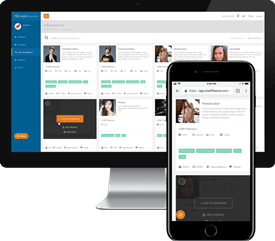Last Updated on September 9, 2022
If you had to guess, what do you think is the most effective form of influencer marketing?
A-list celebrities such as Justin Bieber and Kendall Jenner lounging around in their Calvins and Tweeting about it?
Reality TV personalities like Scott Disick indulging in a protein shake at precisely 4pm est? (oops)
How about that female running athlete (let’s call her Laura) you follow on Instagram?
Laura’s the one in your Tuesday evening running group who posted a picture of her brand new performance trail running shoes last week. She’s well known within your local running community, routinely finishing in the top 10 at races.
Although Laura’s mile time is about a minute and a half quicker than yours, she’s still someone you consider a peer. After all, you run in the same group, compete in many of the same races and oftentimes end up at the same local bar for a recovery beer or two after a long run.
Truth be told, her Instagram post introduced you to this up-and-coming running shoe brand. After a little additional online research, you stopped by your favorite running shoe store and picked up a pair this afternoon. While you know in your heart they won’t make you as fast as Laura, she knows a lot about performance running gear and you needed a new pair anyway.
This scenario doesn’t end with your purchase. Laura is revered within your running community and six other people showed up wearing the same shoes to the group run this evening. This was a brand you didn’t even know existed before last week but it’s logo is now prevalent within your circle.

The shoe manufacturer would likely have to pay Disick $15,000 — $20,000 for a sponsored post, but Laura acted as a brand ambassador in exchange for a free pair of shoes.
Sure, her 826 Instagram followers don’t hold a candle to Scott Disick’s 18.1 million, but there’s not a thing the TV personality could do to get you to buy those shoes. You don’t follow him and could care less about what he’s photographed jogging around in.
On the other hand Laura simply laced up, took a picture, and influenced you and six others to buy a pair of shoes.
Laura is someone we identify as a peer influencer. We previously explained that peer influencers are made up of our friends and neighbors. We want what they have because we trust their judgement. And they are accessible.
Filling a void
Small businesses in particular can benefit greatly by simply focusing on peer influencers to promote their products and services, especially to younger consumers.
Research by Harris Interactive concludes nearly 70% of Millennial social media users are influenced to buy a product or service based on posts from their peers. In other words, my aforementioned scenario with the running shoes is something that happens very frequently.
Before the Intellifluence platform launched, very few small businesses could afford to implement effective influencer marketing campaigns. Many agencies charge up to $20,000 a month to use their services, which could easily amount to a year’s worth of a small company’s marketing budget.
By focusing on peer level influencers, smaller brands can reach communities such as running clubs, fitness communities, moms groups, and countless others… These peer influencers have one specific advantage over celebrities: authenticity.
It’s all about authenticity
At the risk of focusing too heavily on a single celebrity, this will be the last time I mention Scott Disick.
Let’s be real here… Do you honestly believe he rides around his office in a mini Segway, even though he says he’s “loving it” in a recent Instagram post?
Celebrities appear in approximately 9% of American ads, compared to more than double that number in 2004. Nielsen found that celebrity endorsements in advertising only resonated with 12% of respondents (compared to humor, which resonated with 47% of respondents).
So how important is peer level influence?
To Millennials, it is vital. Close to 45% in this demographic value authenticity over content.
Peer influencers don’t rely on a script. Their social media posts look far more natural than paid celebrity endorsements. Peer influencers actually use the products they are posting about and can articulate the value they get from them.
These examples represent why 92% of consumers trust peer recommendations over ads. If you are a small business owner, chances are you can benefit greatly from an effective peer influencer marketing strategy.
Leverage the influence of regular, everyday consumers with engaged friends, family and followers. Then watch your sales grow.

Andrew is the Head of Client Services for Intellifluence and has a background in communications. He is committed to helping brands get the most out of their campaigns and is the co-host of the Influencer Spotlight series.






